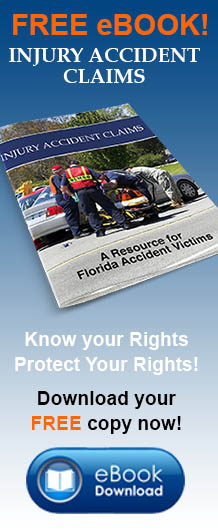Witnesses In Your Car Accident Claim
It is difficult to underestimate how important witnesses can be in your car accident claim. In many cases, a good witness is the deciding factor in prompting an insurance company to settle with you or in convincing a jury that your case is worthy of a large cash award. In contrast, a poor witness can sabotage your case quickly. It is very important that you identify the witnesses at your accident scene and, with the help of your attorney, evaluate the testimony of each in order to deal with both good and bad witnesses.
How Can A Witness Help My Case?
Witnesses can be very valuable when you are trying to prove the circumstances that led up to your accident and the events that surrounded the crash. They may be able to confirm certain details or even provide you with information of which you were not aware. Even witnesses who did not actually see the accident can be valuable if they have information showing that you were injured or describing the actions of the other driver immediately after the crash. However, a witness who is not identified is of no use to you. It is very important to quickly identify and contact witnesses in order to have the best chance of finding those who can help you in your car accident claim.
How Can I Identify Witnesses to My Case?
There are several ways of identifying witnesses in a case, including:
- Return to the scene. Whether you were able to identify witnesses at the time of the crash or not, it may help to return to the scene and talk to those who live or work in the area. In many cases, they can not only tell you about the crash but also about previous accidents that may have occurred in the same location.
- Review the police report. The police may have identified someone who was a witness with whom you have not spoken. Be sure to get a copy of the police report as soon as possible after the crash and review it for the names of potential witnesses.
- Locate witnesses through other witnesses. Talk to the people you know who saw the accident and ask if there was anyone else with them at the time. Sometimes friends and family of witnesses can also help you with your case.
What Information Should I Collect?
When you identify witnesses to your case, be sure you collect their names, addresses and telephone numbers, including home, work and cell. Always be polite and straightforward; never bother or chase a witness. Your attorney can handle any witnesses who are reluctant to speak to you. If the witness is cooperative, type up a copy of their statement and ask them to review it and sign it so that you can turn it in to the insurance company.
What If I Know the Witness?
If your witness is a friend of yours or a family member, you should still type up a statement and have them sign. Just because a witness is related to you does not invalidate his or her testimony.
When witnesses are uncooperative or do not recall the facts of your case accurately, it is still important that you speak to them. You must know in advance, if possible, that there may be a witness who will speak against your case. If this happens, your attorney can prepare for such a possibility by collecting other information and testimony that supports your claim.
It’s important when choosing a personal injury attorney that you select one that has extensive experience with car accident claims and most importantly, taking those cases to trial. The accident attorneys at David & Philpot, P.L., have been helping victims of auto and truck accidents in Florida for over 20 years. We understand how important witnesses are in auto accident claims and will work with you to maximize the benefit of any witnesses in your case. If you or a family member have been injured in an accident that wasn’t your fault contact us today for a free, no obligation consultation. We can be reached at 800.360.7015 or you can fill out our free case evaluation form and we will get right back with you.
Your attorney will be key in interviewing and preparing witnesses for depositions or trial. Identify those who may be supportive of your case and pass the information you collect on to your attorney so that he or she can use it on your behalf.




Comments are closed.